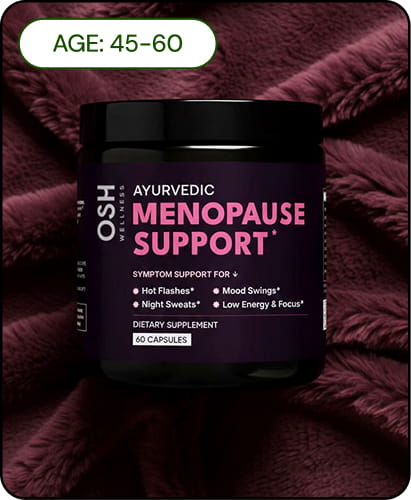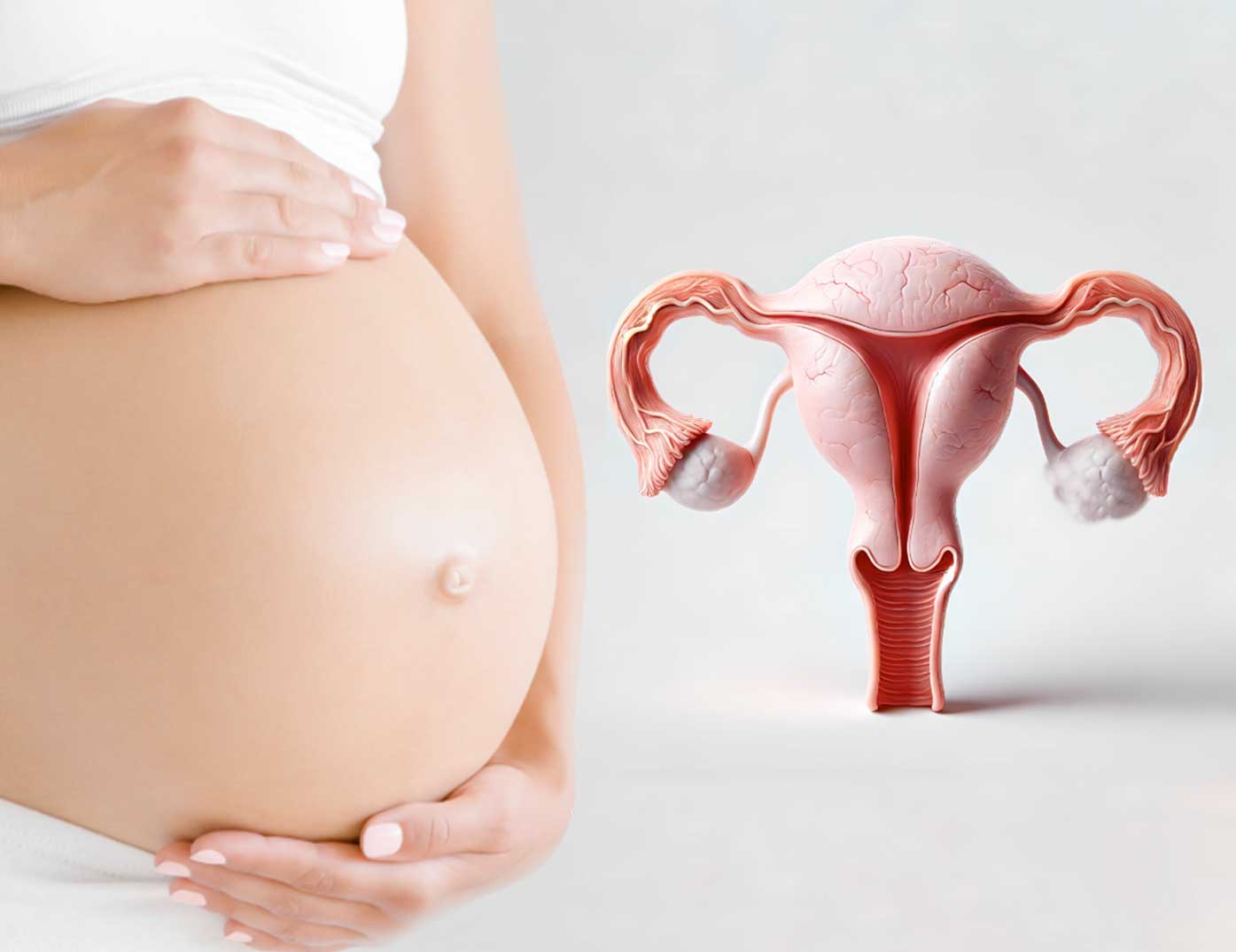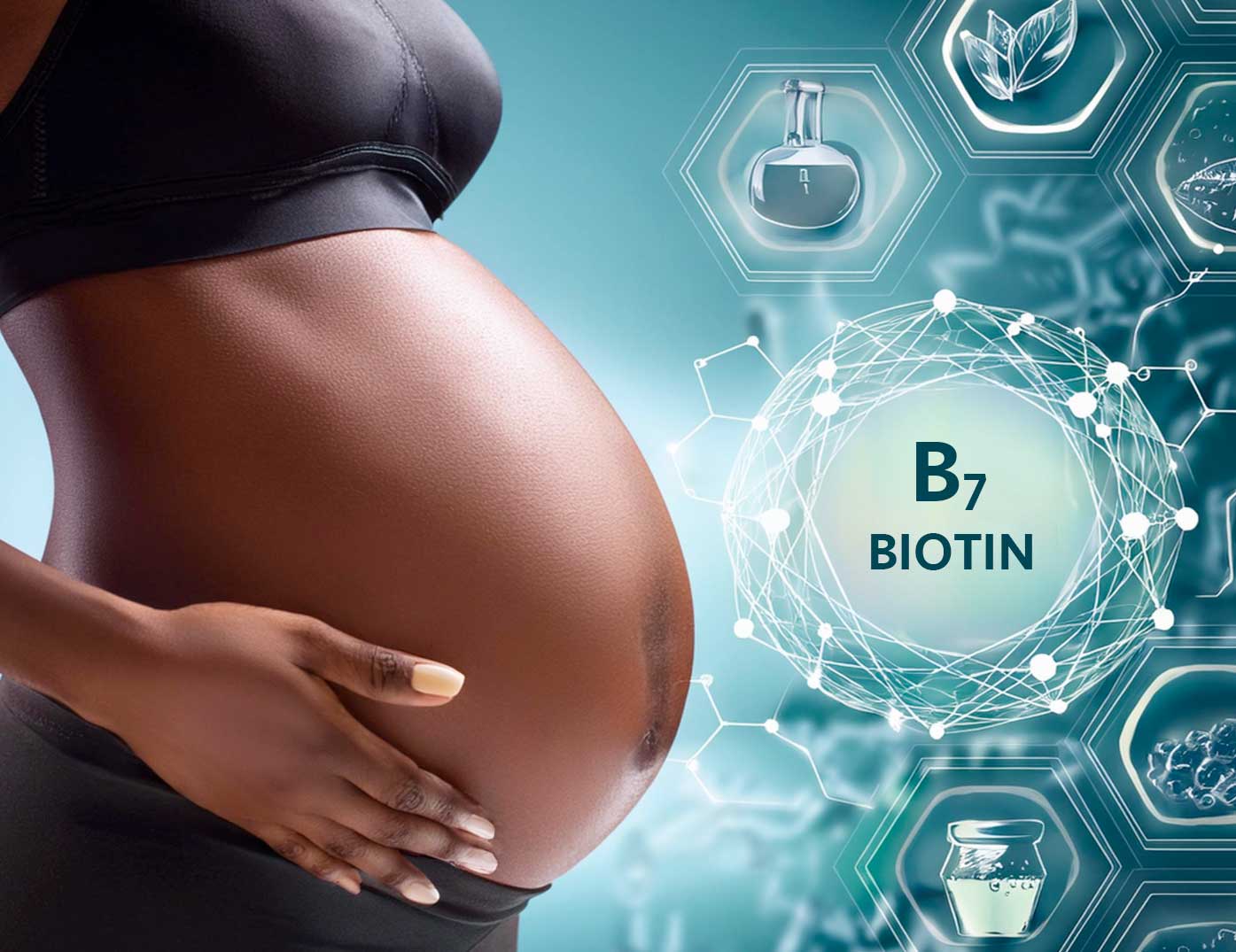Table of contents
Pregnancy is a time of profound change and excitement, but it can also come with a few surprises, one of which is the development of ovarian cysts. If you’ve been told you have ovarian cysts during pregnancy, you might be wondering what this means for you and your baby. Let’s dive into ovarian cysts, why they might develop during pregnancy, and how to manage them.
What is an Ovarian Cyst?
An ovarian cyst is a fluid-filled sac that forms on or inside the ovary, the reproductive organ responsible for growing and releasing eggs. You have two ovaries, and either of them can develop cysts. They are actually quite common, with around every 10 out of 100 women developing a cyst at some point in their lifetime [1].
Think of a cyst as a small, benign balloon filled with liquid. They can vary in size, ranging from around half an inch to four inches. Most ovarian cysts are harmless and go away on their own. But they can sometimes cause discomfort or other issues, especially if they rupture or twist around themselves and the surrounding organs, causing torsion. During pregnancy, these cysts are monitored closely to ensure they don't pose a risk to the mother or baby.
Symptoms of an Ovarian Cyst

Not all ovarian cysts make themselves known with noticeable symptoms, but when they do, you might experience:
Pelvic Pain: A dull ache or sharp pain in the lower abdomen, particularly on one side.
Fullness or Pressure: A sensation of heaviness or fullness in the pelvic region.
Painful Intercourse: Discomfort during or after sexual activity.
Abnormal Bleeding: Light spotting or unusual bleeding between periods.
Changes in Urination or Bowel Movements: Increased urgency or discomfort.
If you experience severe pain, fever, or vomiting, it's important to seek medical attention promptly. These could indicate complications related or unrelated to a cyst in pregnancy.
Causes of Ovarian Cysts During Pregnancy

Ovarian cysts during pregnancy can develop for several reasons, but the most common is a corpus luteum cyst. This occurs when the follicle from which the egg came fills with fluid and remains as a mass on the ovary instead of shrinking. Corpus luteum cysts can be common in early pregnancy. Fortunately, many cysts of this type disappear around the middle of the second trimester. Other reasons for cysts during pregnancy include:
Hormonal Changes: Pregnancy hormones can sometimes cause cysts to form. These are typically functional cysts that are a normal part of the body's adaptation to pregnancy.
Increased Blood Flow: The increased blood flow to the ovaries during pregnancy can sometimes lead to cyst formation.
You can also have a cyst before getting pregnant that remains during your pregnancy. Some of these cysts are harmless, but pregnancy can cause others to grow in size.
What If I Develop an Ovarian Cyst During Pregnancy?

If an ovarian cyst is detected during pregnancy, how it is treated will depend on several factors, including the size of the cyst, its type, and whether it’s causing any symptoms. Here’s what you might expect:
Regular Monitoring: Your healthcare provider will likely recommend routine ultrasounds to keep an eye on the cyst's size and behavior. Most cysts are harmless and shrink or disappear on their own as the pregnancy progresses.
Pain Management: If you experience discomfort, over-the-counter pain relievers like acetaminophen might be suggested. Always check with your doctor before taking any medication.
Surgical Intervention: In rare cases where a cyst is large, growing, or causing significant problems such as twisting, surgery might be necessary. This is usually done through a minimally invasive laparoscopic procedure to minimize risks to you and your baby.
To ensure the cyst is managed appropriately, it’s crucial to follow your healthcare provider’s advice and attend all scheduled appointments.
Are There Any Risks Associated with Ovarian Cysts During Pregnancy?

While most ovarian cysts during pregnancy are benign and pose little risk, there are potential complications to be aware of:
Rupture: A cyst can sometimes burst, causing sharp pain, fainting, vomiting, and a fever. Cyst rupture is dangerous because, in some cases, it can cause internal bleeding. Immediate medical attention is required if this occurs.
Ovarian Torsion: In rare instances, a cyst can cause the ovary to twist, which is called ovarian torsion. This can result in severe pain, nausea, vomiting, and a low-grade fever. If it isn’t treated promptly, it can lead to loss of the ovary.
Impact on Pregnancy: Although uncommon, certain large or problematic cysts could potentially impact pregnancy, including causing premature labor or interfering with fetal development or delivery.
Regular monitoring can help your healthcare keep an eye on these potential risks.
Outlook for Cysts During Pregnancy
Finding out you have an ovarian cyst during pregnancy might feel alarming, but remember that most cysts are harmless and resolve on their own . By staying informed and working closely with your healthcare provider, you can help ensure that both you and your baby remain healthy throughout your pregnancy. If you notice any unusual symptoms or have concerns, don’t hesitate to contact your medical team. After all, a little extra care goes a long way in ensuring a smooth and happy pregnancy.
FAQs
Can ovarian cysts affect labor?
Most ovarian cysts are small enough to not impact pregnancy or childbirth. However, growing or very large ovarian cysts can affect childbirth by obstructing the pelvis or causing the baby to present not head-down, but these complications are rare.
What are the treatment options for ovarian cysts during pregnancy?
Ovarian cysts during pregnancy are generally harmless and as a result, are usually just monitored. If your doctor determines treatment is necessary beyond OTC pain relief, they will often try to remove the cyst in a minimally invasive laparoscopic procedure.








